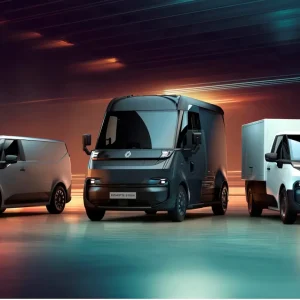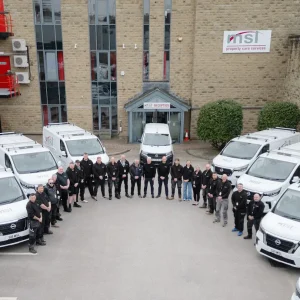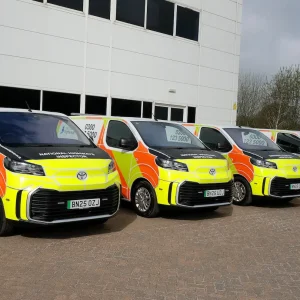Progressing the deployment of zero-emission vans is top of the agenda for fleets in 2024, according to the Association of Fleet Professionals (AFP).
The organisation’s chair, Paul Hollick, said that deploying the vehicles was proving difficult for some businesses.
He said there were several tricky practical and strategic issues that needed to be overcome.
Hollick said: “The view of most van fleets is that electrification, which obviously forms the backbone of the move towards zero emissions, is going to be very much an incremental process because of compromises imposed by the current technology when it comes to key areas such as payload, range and charging.
“Across our membership, the feeling is that these issues can be resolved but that it will take time and a wide range of strategies will need to be applied.
“For us, it appears that making progress in these areas – and the incremental best practice policies that need to be developed to make this happen – will be the dominant fleet topic for 2024.”
Hollick suggested the most immediate problem to tackle was resolving issues around the 4.25t electric van derogation, intended to allow electric LCVs to weigh up to 4.25t, rather than the usual 3.5t, to account for the increased weight of their batteries. Hollick said this had been beset by a degree of confusion that had caused many fleets to cancel or delay orders.
He said: “We’re talking to the relevant official bodies about this and are hopeful that workable solutions will soon appear.
“Being able to practically operate 4.25t electric panel vans is central to many fleets’ zero emissions plans and this is something that is very much acting as a roadblock to progress.”
Hollick said a longer-term topic that also needed addressing was finding solutions to van charging, with both rapid proliferation of on-street chargers and better access to forecourt charging facilities sorely needed.
He said: “Where drivers can charge a van on their driveway overnight, fleet operations have a head start. However, it is now known that around half live in terraced houses or apartments.
“The ideal solution to this conundrum is on-street charging and the AFP has been working on a national ‘heat map’ in recent months to show where these are most needed, making the data available to relevant parties such as local authorities and charger companies.
“Also, we’ve been talking to charging companies about better access to forecourt chargers. Simply, the bays are often not big enough or aren’t designed to accommodate light commercial vehicles, and this is proving a major hindrance to fleets that want to use electric vans.
“Like on-street charging, this is not a problem that will be solved overnight but we are hopeful that progress will be made on both these fronts in 2024.”
The AFP is also planning to create a new working group to investigate the practicalities of shared depot charging, where fleets provide mutual access to on-site facilities.
Hollick said: “We know from our research that there is much potential interest in this idea. What we now need to work out is whether it can be made to work on a practical level.”
Hollick added that a further subject likely to be on the minds of fleet operators in 2024 was hydrogen.
He said: “We’ll be saying more about this soon but the arrival of the Vauxhall Vivaro-e Hydrogen represents probably the first viable opportunity for van fleets to adopt hydrogen.
“The advantages are a fast refuelling time, 250-mile range, and a purchase price as low as £32,000. The list of disadvantages is long though, starting with a refuelling infrastructure that is so small that it barely exists.
“However, it is clear that at least some of our members are keen to try this vehicle in operational roles where electric vans are considered impractical, creating a multi-fuel zero emissions strategy.”





